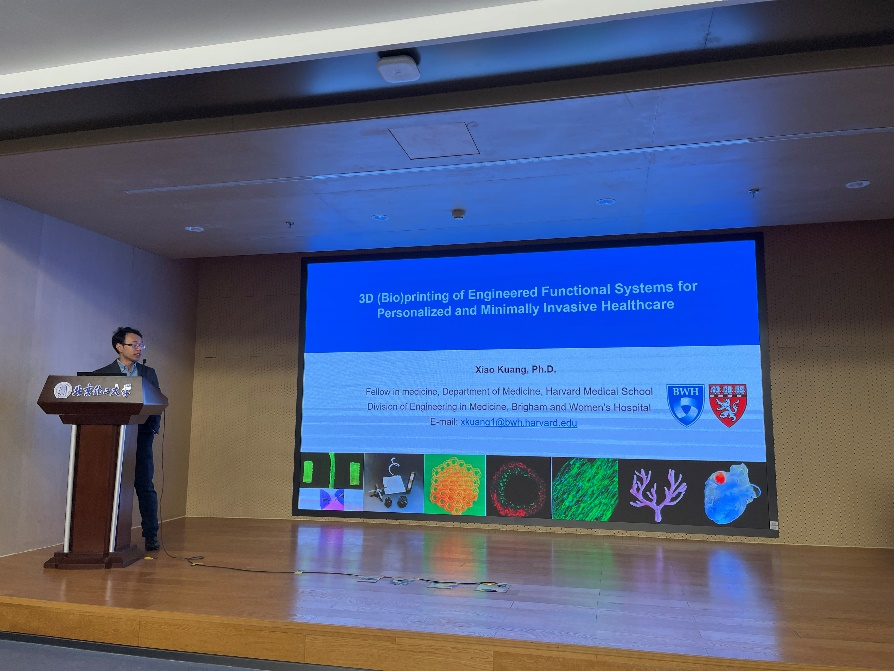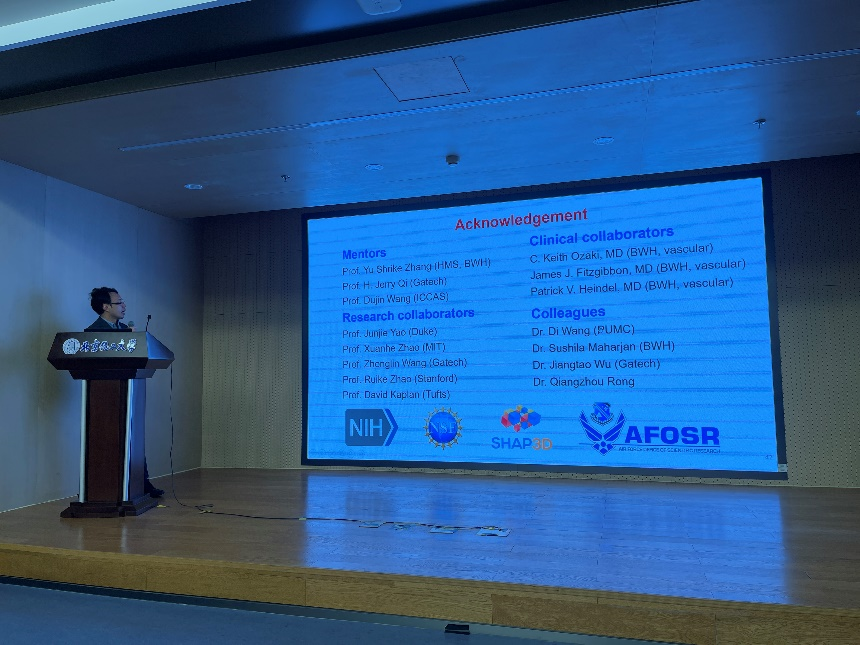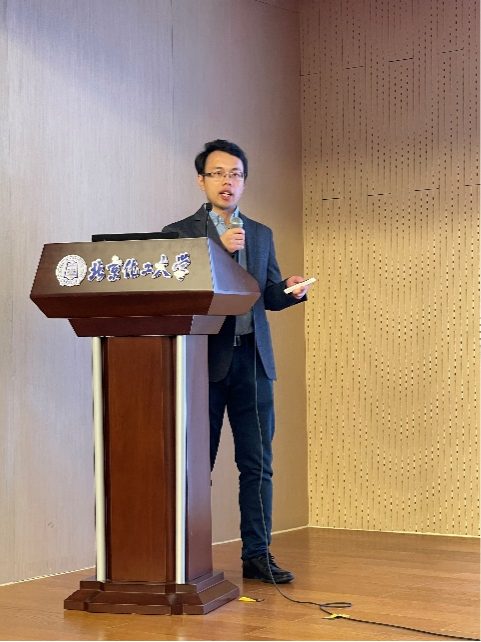
On 11th, December 2023, Dr. Xiao Kuang, a Research Fellow at Harvard Medical School, gave us an invited lecture entitled “Multimaterial and Multifunctional 3D Printing of Soft (Bio)materials: From Fundamental Innovation to Healthcare Applications” at Beijing University of Chemical Technology. Prof. Jiajia Xue hosted the lecture.


Abstract: Additive manufacturing, commonly known as 3D printing, holds the promise of unparalleled geometrical freedom, enabling the creation of structures with unprecedented complexity. This technique utilizes external energy, such as heat or light, to selectively solidify materials, constructing 3D objects layer by layer with high precision and material efficiency. 3D printing of soft (bio)materials have been the most actively studied multidisciplinary fields, merging chemistry, materials, mechanics, and medicine, for expanding applications, such as soft robotics, flexible electronics, medical devices, and tissue engineering. However, traditional 3D printing of polymers faces limitations in terms of material strength, functionality, and printing speed, hindering its widespread use. This presentation explores the convergence of innovative soft material ink design and novel 3D printing techniques, advancing the understanding of structure-manufacturing-property relationships. The aim is to push polymer 3D printing towards stronger, faster, and smarter capabilities, specifically tailored for bench-to-bedside healthcare applications. The talk is divided into three sections. Firstly, we discussed the design of advanced composite inks for multimaterial 3D/4D printing of functional polymers in smart soft robots and medical devices. Molecular engineering principles are employed to tune rheological and crosslinking behaviors, impacting printability and functional properties. The second section introduces an innovative deep-penetrating acoustic volumetric printing that realizes fast printing of opaque composite even through centimeter-thick biological tissues for minimally invasive healthcare. I will elucidate the key role of dynamic rheological profiles of the multicomponent sono-ink in accommodating the focused ultrasound-triggered fast and selective crosslinking. The third part briefs on cell-friendly tough hydrogel inks and multimaterial printing to replicate tissue’s complex structures and dynamic functions, catering to the growing needs in tissue engineering. Finally, this presentation highlights the transformative potentials of polymer 3D printing in shifting from prototyping to advanced manufacturing for healthcare and beyond.
Bio: Dr. Kuang Xiao obtained his Ph.D. in Polymer Chemistry and Physics from the Institute of Chemistry, Chinese Academy of Sciences in 2016 under the supervision of Professor Dujin Wang. Later, he conducted his postdoctoral research with Professor H. Jerry Qi at Georgia Tech, specializing in soft active materials and 3D/4D printing. Currently, Dr. Xiao is a Research Fellow in Medicine within Professor Yu Shrike Zhang’s group at Harvard Medical School & Brigham and Women's Hospital, focusing on soft biomaterials and bioprinting. He also holds a part-time instructor position in the Biomedical Engineering Department at Tufts University. His research mission is centered on the development of innovative soft materials and 3D printing techniques, translating these advances into healthcare applications. His focus lies in molecularly designing functional soft materials and innovative 3D printing technique to enable the creation of complex and dynamic engineered systems. In addition, he seek to establish robust structure-manufacturing-property relationships utilizing a combination of experimental and computational tools. His ultimate goal is to transform soft biomaterial technology into healthcare applications, including the development of medical devices, drug delivery systems, tissue engineering solutions, and minimally invasive interventions. Dr. Kuang has published 39 (co)-first/corresponding author papers in prestigious journals, including Science, Science Advances, Advanced Materials, Advanced Functional Materials, Matter, and Macromolecules. He coauthored seven book chapters and ten patents, one of which is licensed. His work has earned significant academic interest with over 7600 citations and an H-index of 41 according to Google Scholar. His research has been highlighted by NSF and AFOSR, as well as international media outlets, including ScienceDaily, and Advanced Science News.
